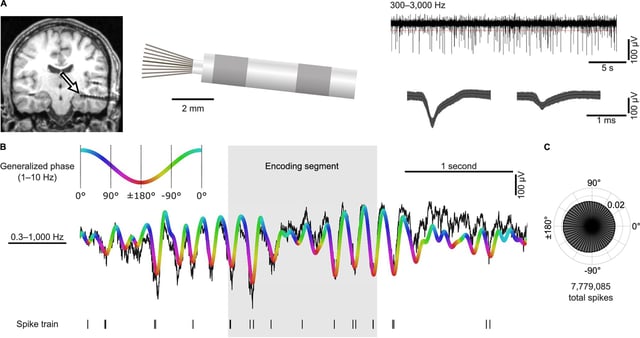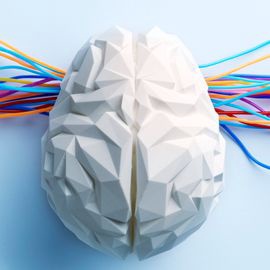Overview
- Researchers recorded from single neurons in the medial temporal lobe of epilepsy patients performing a spatial memory task using implanted diagnostic electrodes.
- The strength of theta-phase locking during encoding was similar for later recalled and forgotten items, indicating that phase alignment organizes timing but does not directly mark memory success.
- A subset of neurons shifted their preferred spike timing between learning and recall, supporting models that separate encoding and retrieval within distinct theta phases.
- The team applied frequency-adaptive theta estimation across 1–10 Hz and cycle-by-cycle spectral parameterization to show stronger phase locking during prominent oscillations and steep aperiodic slopes.
- Though based on opportunistic epilepsy recordings, the findings suggest new avenues for probing memory disorders and developing neuroprosthetic approaches.


